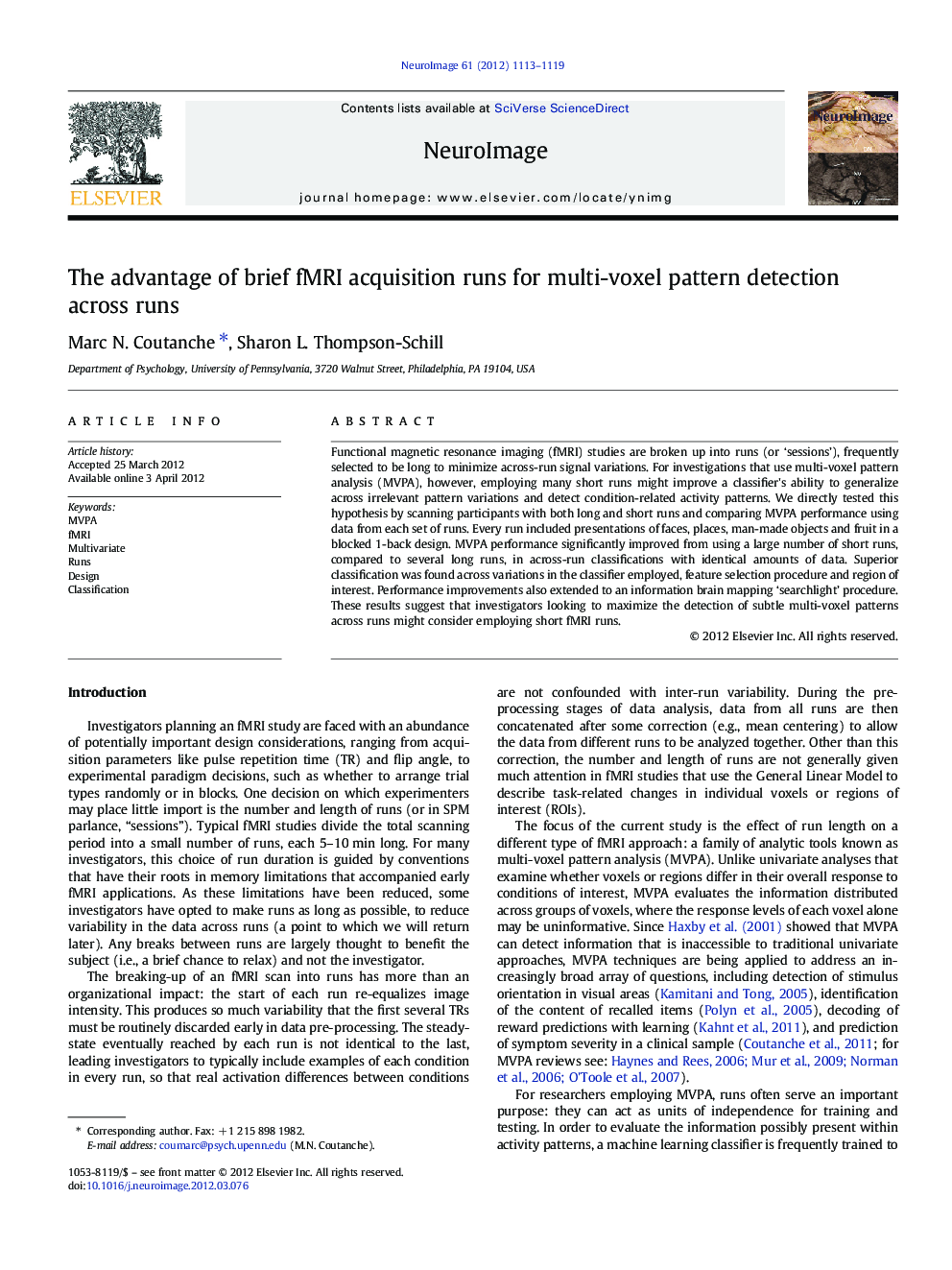| Article ID | Journal | Published Year | Pages | File Type |
|---|---|---|---|---|
| 6030830 | NeuroImage | 2012 | 7 Pages |
Functional magnetic resonance imaging (fMRI) studies are broken up into runs (or 'sessions'), frequently selected to be long to minimize across-run signal variations. For investigations that use multi-voxel pattern analysis (MVPA), however, employing many short runs might improve a classifier's ability to generalize across irrelevant pattern variations and detect condition-related activity patterns. We directly tested this hypothesis by scanning participants with both long and short runs and comparing MVPA performance using data from each set of runs. Every run included presentations of faces, places, man-made objects and fruit in a blocked 1-back design. MVPA performance significantly improved from using a large number of short runs, compared to several long runs, in across-run classifications with identical amounts of data. Superior classification was found across variations in the classifier employed, feature selection procedure and region of interest. Performance improvements also extended to an information brain mapping 'searchlight' procedure. These results suggest that investigators looking to maximize the detection of subtle multi-voxel patterns across runs might consider employing short fMRI runs.
⺠Shortening fMRI runs ('sessions') can enhance the detection of multi-voxel patterns. ⺠Exposing MVPA classifiers to many short runs can improve across-run generalization. ⺠Performance increases are found across classifiers, regions and in searchlights.
